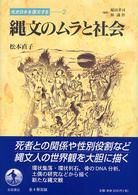Full Description
Takes a multicultural, interdisciplinary approach to the rhetoric of science to expand our toolkit for the collective management of global risks like climate change and pandemics.
With this volume, the field of rhetoric of science joins its sister disciplines in history and philosophy in challenging the dominance of Euro-American science as a global epistemology. The discipline of rhetoric understands world-making and community-building as interdependent activities: that is, if we practice science differently, we do politics differently, and vice versa. This wider aperture seems crucial at a time when we are confronted with the limitations of Euro-American science and politics in managing global risks such as pandemics and climate change-particularly in our most vulnerable communities. The contributors to this volume draw on their familiarity with a wide range of global scientific traditions-from Australian Aboriginal ecology to West African medicine to Polynesian navigation science-to suggest possibilities for reconfiguring the relationship between science and politics to better manage global risks. These possibilities should not only inspire scholars in rhetoric and technical communication but should also introduce readers from science and technology studies to some useful new approaches to the problem of decolonizing scenes of scientific practice around the world.
Contents
List of Illustrations
Preface In Memorium: Ubiratan D'Ambrosio, Ethnomathematics, and Rhetoric Acknowledgments
Introduction: Reconfiguring Global Rhetorics of Science
Lynda C. Olman
1. How Euro-American Science Became Dominant: Transnational Circulations of Knowledge and Capital
Kelly Happe and Lynda C. Olman
2. The Shifting Rhetoric of Environmental Science in Australia: Acknowledging First Nations People and Country
Emilie Ens, Shaina Russell, Bridget Campbell, Sabina Rysnik-Steck, Monica Fahey, Patrick Cooke, Renee Cawthorne, and Daniel Sloane
3. African Sciences and Indigenous Knowledge Systems in the West African Ebola Crisis
Toluwani Oloke and Olusegun Soetan
4. A Critical Contextualized Approach to Studying Clashing Risk Cultures: Mapping the Transcultural Environmental Risk Communication of PM2.5 in China
Huiling Ding and Jianfen Chen
5. Where Voyaging Ends: Social Cosmology on Rapa Nui
Francisco Nahoe
6. Celtic Geometric Art as a Visual Rhetoric of Science
Evelyn Dsouza
7. This Is a Viral Story about Viral Stories: Image and Graphical Power in COVID Communication in the Navajo Nation
Sunnie R. Clahchischiligi, Julianne Newmark, and Joseph Bartolotta
8. A Rhetoric of the Home Ground: Local Knowledge and Data-Gathering among the North Atlantic Glaciers
Ryan Eichberger
Bibliography
Contributor Biographies
Index








